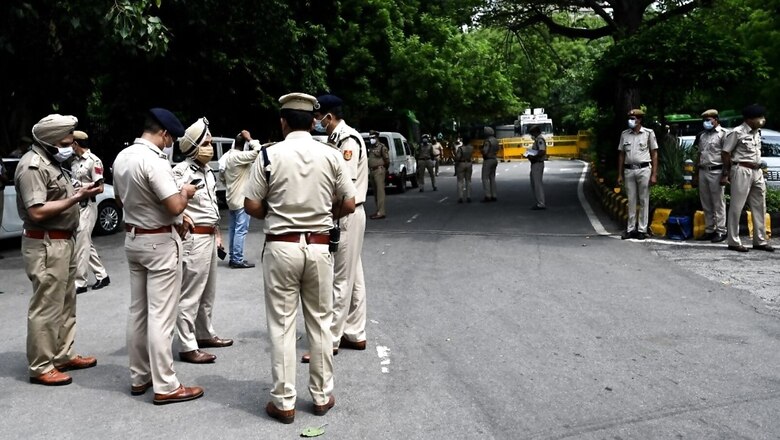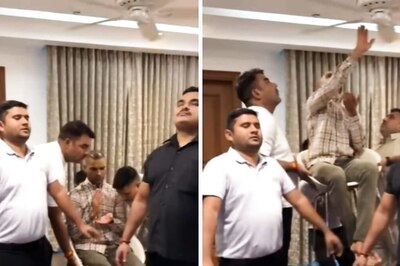
views
The Delhi Police removed a large portion of the barricades and concertina wires it had put in place at the anti-farm laws protest site at Ghazipur on the Delhi-Uttar Pradesh border, where scores of protestors continued to stay put on Friday. Multiple layers of iron and cement barricades, and at least five layers of concertina wires were put up last year. The arrangements were further beefed up after the January 26 violence in Delhi during the farmers’ protest against three new agriculture laws of the Centre.
Deputy Commissioner of Police (East) Priyanka Kashyap said, “The process of removing the barricades from National Highway 9 has started. The temporary barricading is being removed to ease out vehicular movement. However, National Highway 24 was already open for traffic.” The opening of the road stretch would help thousands of commuters in Ghaziabad, Delhi and Noida as well as those travelling between the national capital and the interiors of Uttar Pradesh, towards Meerut and beyond. Police officials and labourers were also seen removing the iron nails that were studded on NH-9 at Ghazipur, where hundreds of protesters, mostly members of the Bharatiya Kisan Union (BKU), have been occupying a road stretch since November 2020.
The BKU, a participant in the anti-farm laws movement spearheaded by the Samyukta Kisan Morcha (SKM) — an umbrella body of over 40 farm unions — reiterated that the blockade was put by the police and not the farmers. BKU leader Rakesh Tikait said the future course of the protest would be chalked out by the SKM.
BKU office-bearers said the farmers want to go to Delhi once the barricades are completely removed and are open to talks with the Centre to resolve the situation. BKU spokesperson Saurabh Upadhyay said, “If the government wants the logjam to end, it should talk to the farmers now and we are ready for it. But if it wants the farmers’ movement to continue, we are determined to prolong it as it has already been 11 months since the protests began.” While the police removed a large portion of the barricades, wirings and iron nails from NH-9 (the Delhi-Meerut Expressway flyover) by the evening, the tents and other temporary structures put up by the protesters continued to remain there.
BKU’s Uttar Pradesh unit general secretary Pawan Khatana said, “The government had said it had not placed the barricades and we had said the barricades were put up by the government and the police. We are sitting on the borders of Delhi and once the barricades are removed, we will head towards Delhi. We will go to Parliament, where the laws were enacted.” The process to remove the barricades started following the October 21 Supreme Court direction that called for unblocking of the roads that have remained out of bounds for commuters due to the protests at Delhi’s border points of Singhu, Tikri and Ghazipur. While the protesting farmers have been claiming that the three laws enacted last year are against their interest, the Centre has been saying that these legislations are pro-farmer.
Thousands of farmers have been camping at Tikri, Singhu and Ghazipur, protesting against the three contentious laws since November 26, 2020. According to a senior police officer, some layers of barricades placed by the police at the Tikri border were removed on Thursday night.
The Supreme Court had, on October 21, said the farmers protesting at Delhi’s borders have the right to agitate but they cannot block the roads indefinitely.
.
Read all the Latest News , Breaking News and IPL 2022 Live Updates here.




















Comments
0 comment